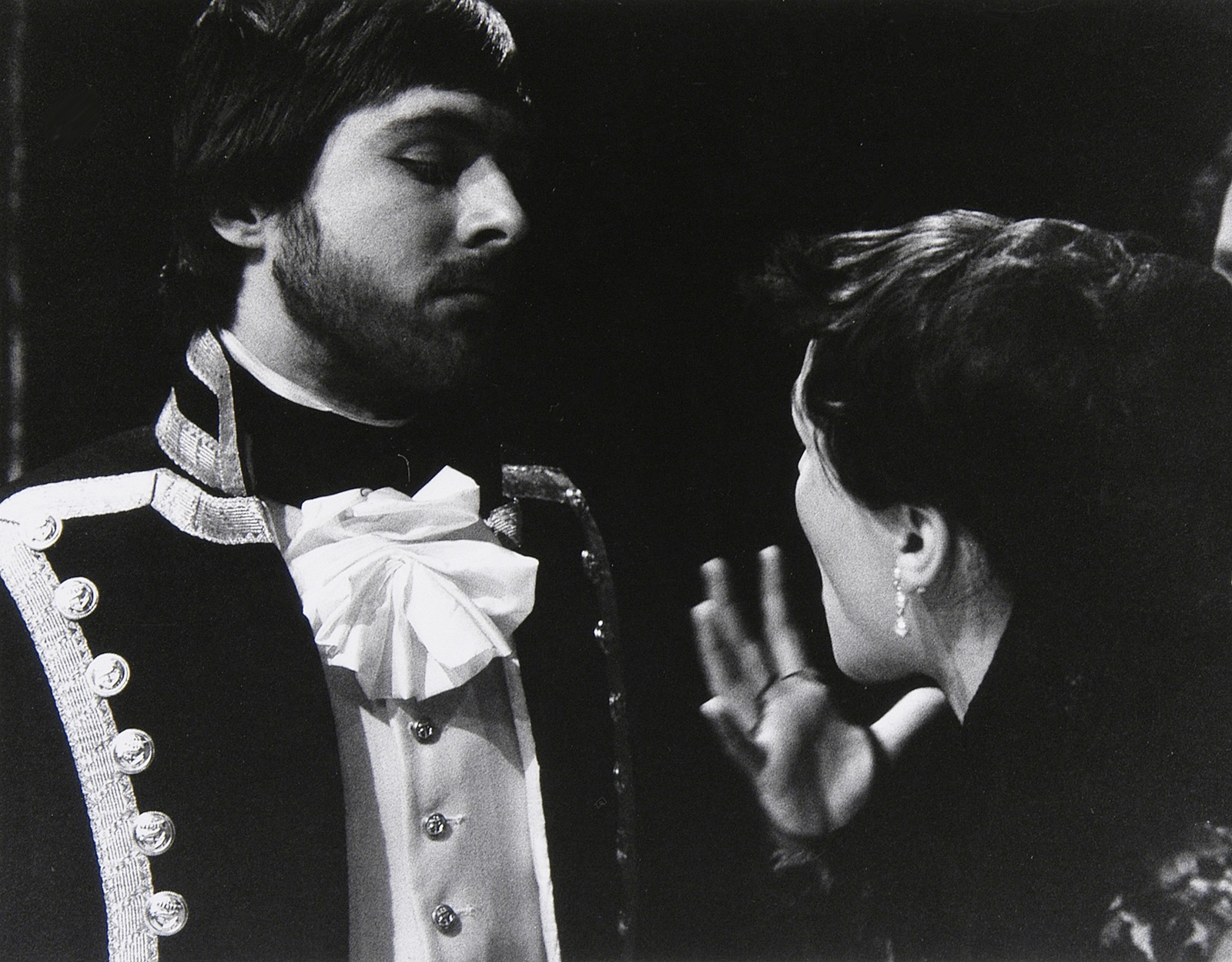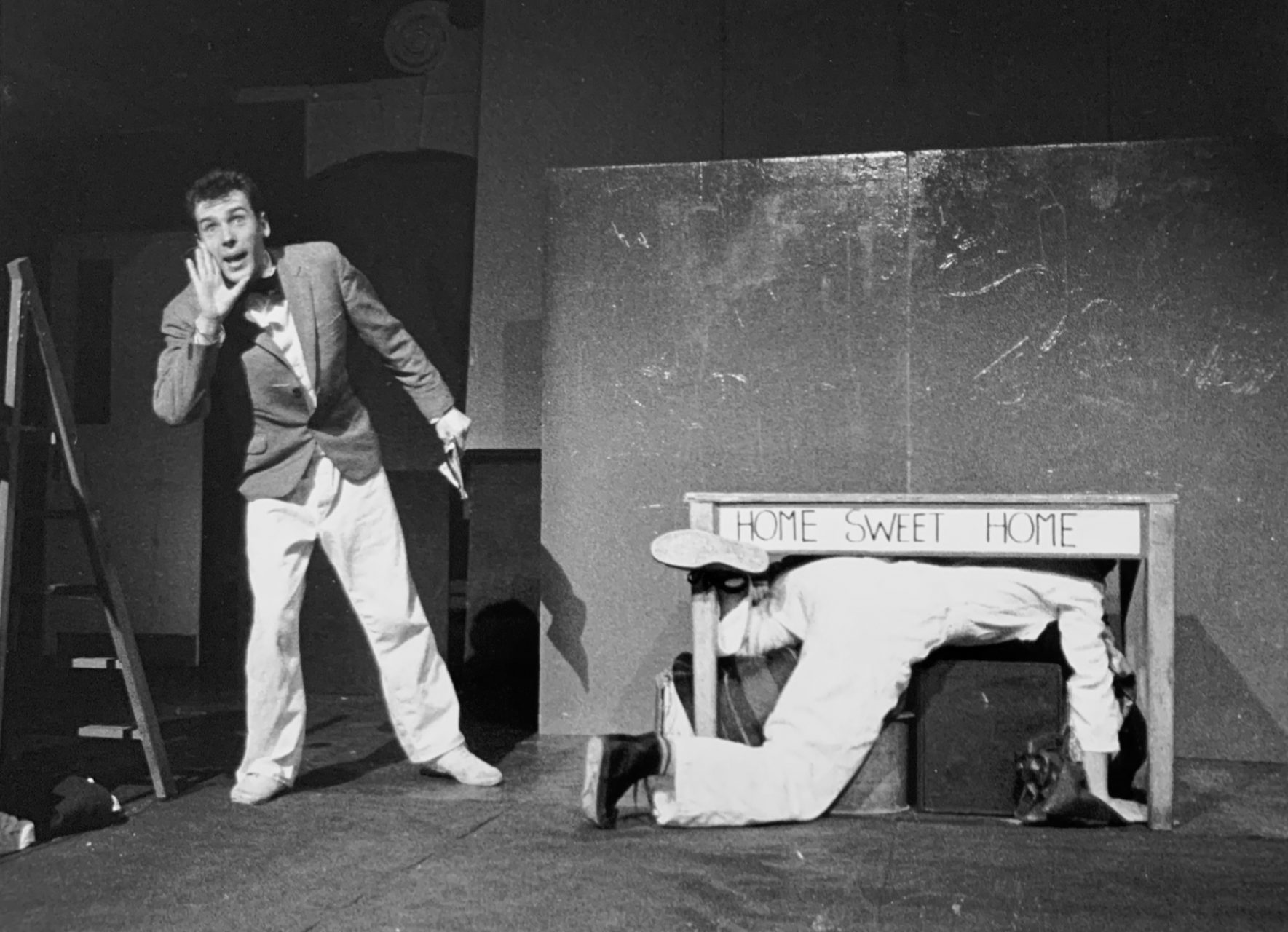The first point is pointless. I was with the careers advisor at school aged 17 and I did not have the guts to tell him I wanted to be a rock singer. Of course I already knew that to say such a thing would be treated as some kind of joke, if not a reason for him to laugh at me and tell me to grow up. There were no degrees in this subject, and he probably had no conception of what I was not talking about. Still I was disappointed with myself not to raise the subject, not to make the point. In retrospect I realised other errors were made, since I was about to become the Editor of the school magazine. At the time time I had no conception this was an actual job, since once again there was no degree available in this subject. Unbeknownst to me at the time, the correct degree was English Literature, which I in fact did end up partially studying. Yet the idea that this was an actual job evaded me. You could only be a Teacher.
Later I had my big break as an actor, I was to play Iago in Othello at the Oxford Playhouse, sponsored by The Observer. This I managed to do and was quite good, and certainly better than the Zambian playing Othello. Unfortunately he was having some kind of nervous breakdown, having been accused of actually strangling Desdemona. This massive production became a laughing stock when he refused to go within three feet of her, so my performance became rather incidental. After the first night we never saw the Director again, yet there were many more nights of pain in front of thousands of people. Thus ended serious acting.
Another disaster, at least to my mind, put an end to my film career. We had written a touring youth theatre show called The Life and Death Show about the nuclear apocalypse. After many performances we had honed down the Protect and Survive story into a tight and entertaining forty five minutes. This had involved meeting the Secretary of CND, Bruce Kent, and hiding under a table. I was thrilled that this led to making a film at The Albany in Deptford. However this was early days for video, still on reel to reel video tape I believe, and quite simply the Director lost all the audio during the edit! Despite this setback something was recovered leading to a Premiere at the ICA Videotheque. That was all good, but the incomprehensible dialogue sounded like a deep sea quagmire. This naughty Director went on to win many prizes and became a Professor of Film, I never appeared in another film. Such are the breaks, those moments…
Again The Observer was to blame, kind of. I took my huge photographic portrait portfolio into their Art Editor at the ‘Colour’ Magazine (the supplement) and they loved it. To work for them was my dream, so I thought that I had made to the big time, after doing covers for NME and Sounds. It was all close-up black and white portraits, rather in the style of Steve Pyke or maybe even Avedon. However I ended up “second choice”, that is nowhere, and I gave up. Or at least changed my style, I had tried and failed, but of course (in retrospect) I should have tried harder.
The writing was on the wall in 2011 when Tate Britain removed my panoramic tour of Peter Doig from their website, because they were being sponsored by Google. Of course they did not inform me, despite saying “it looks absolutely brilliant”. It was replaced by some fuzzy auto-made panoramas full of stitching errors and incomprehensible angles, the writing on the wall was truly invisible. Yet Jonathan Jones in The Guardian said “Google Street View-style tours of galleries are not to be sniffed at”. He had probably never seen a real panoramic tour in his life. You can’t compete with world organisations working for ‘free’. There is no actual point here, just a gradual decline as Google Street View took over the world, at least in panoramic terms.
That was, in a sense, a list of endings. The high points are not being mentioned here since this article was inspired by the The Last Days of Roger Federer and other endings by Geoff Dyer who makes the point that whole lives can turn on a sixpence, or, at least in terms of tennis, on a single point.
•


